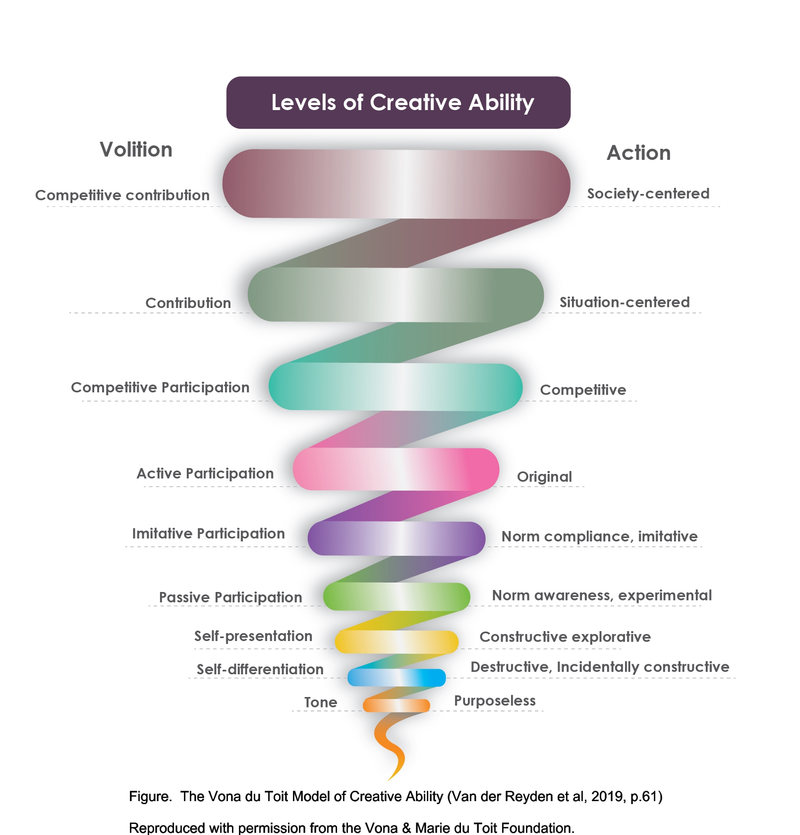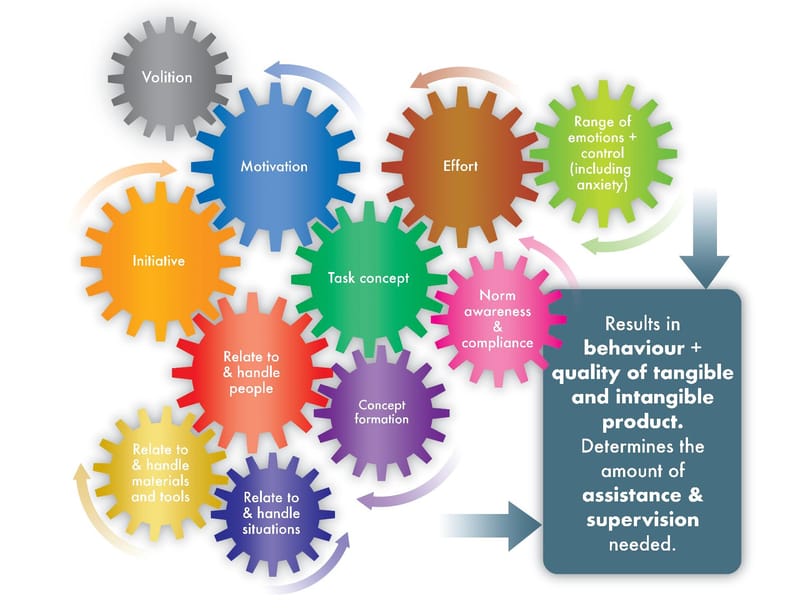The Vona du Toit
Model of Creative Ability (VdTMoCA)
(van der Reyden et al, 2019)
International
Creative Ability Network (ICAN)
NEWS: Mapping review of the VdTMoCA available. Casteleijn, Sherwood, Coulson (2025). South African Journal of Occupational Therapy, Vol 55 (3).
Information, training, resources
JOIN FOR FREE - get free VdTMoCA news, updates, resources and discussion areas.
Over 400 members, OTs and OTAs.
Go to www.patreon.com/icancreativity
All about the VdTMoCA

Overview of the VdTMoCA and ICAN
Overview of the VdTMoCA and information about Dr Wendy Sherwood and the International Creative Abilty Network
Learn More
The VdTMoCA to date
Use of the VdTMoCA in the UK and in other countries. Processes undertaken to embed the VdTMoCA - some tips for today's practitioners.
Learn More
The VdTMoCA in detail
What is creative ability? Core constructs. The model's graphic explained.
Learn More
The levels and phases of creative ability
Brief explanation of the levels and phases of creative ability, relating these to services.
Learn More
Assessment of creative ability and outcome measurement
Overview of the assessment methods and process
Learn More
Treatment
Explanation of the treatment principles and how they relate to each level of creative ability.
Learn More
MDT and service relevance of the VdTMoCA
Overview of how the VdTMoCA can positively influence the quality of service provision and other disciplines' fulfilment of their roles.
Learn MoreTestimonials
TRAINING & CPD
Basic training in the VdTMoCA
Basic training for OTs and OT Support Workers Getting started with the essential foundation knowledge in the VdTMoCA
Fuller understanding
Be confident in your understanding of the levels and phases of creative ability. A South African expert in the VdTMoCA brings the levels alive with clear examples for working with the levels in practice, supported by very user-friendly infographics in the VdTMoCA Refresher. VdTMoCA Refresher PLUS additionally provides treatment activities examples.
Advanced practitioner knowledge
Realising Creative Ability is for advanced knowledge, including recordings of complex case-based teaching and in-practice case supervision.
Improving a service - the Analytical Survey
Gain an understanding of the Analytical Survey Method and how it can enable you to make sense of: - why clients are not attending or engaged as well as you expect in a service, - the relation between clients' needs and problems, and mismatched service provision.